Redditor Asks Her Mom To Leave Her Home After She Insulted Her Kitten And Mistreated Him
Millions of abandoned animals live on the streets of our cities, which is a sad reality. Some end up in shelters, and the lucky ones get adopted.
Unfortunately, people have several requirements when they want to adopt a pet. If the animal is old, sick, or 'not cute enough,' its chances of getting adopted are slim to none.
However, beauty is in the eye of the beholder, and some people manage to spot the true beauty of things if they look closely enough. Looks shouldn't be a factor when it comes to picking a four-legged friend, but unfortunately, it's the only thing people care about.
People care more about aesthetics than true friendship and love. Dogs who are considered "ugly" by others crave love more than the cute ones who get adopted quite quickly.
A Redditor who goes by the username u/ProudAFFurMama1 made a post on the r/AmItheA**hole subreddit, where she explained how she asked her mom to leave after she was mean to her kitten. The user received a lot of interesting reactions to her situation from the Reddit community.
Scroll down to check out the full Reddit post, and scroll a little further to read the comments from the original post.
Here's the original post by Reddit user u/ProudAFFurMama1:
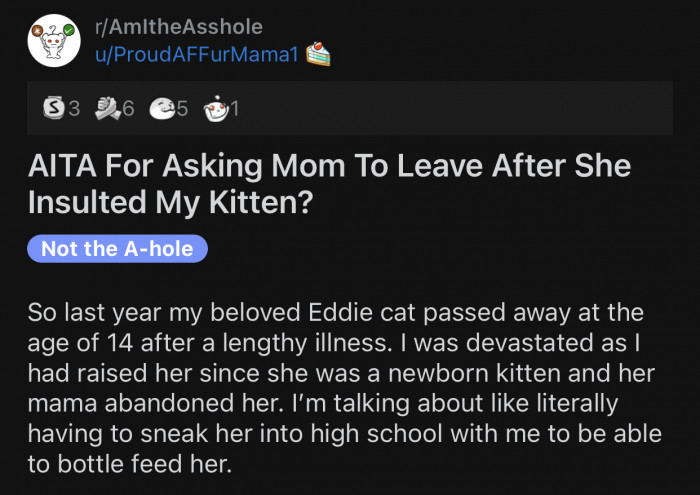
Op decided to adopt two brother kittens and named them Bucky and Steve.
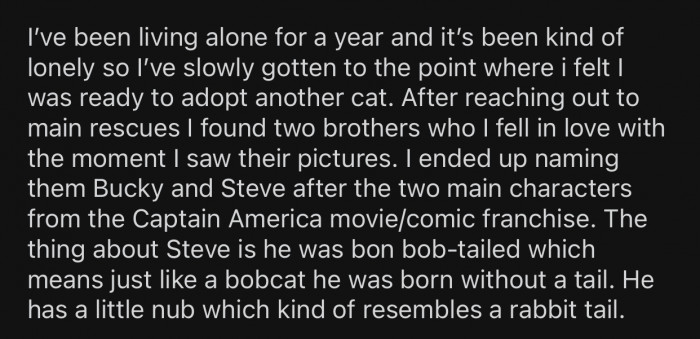
Op's mom kept constantly making comments about the kittens' appearance.
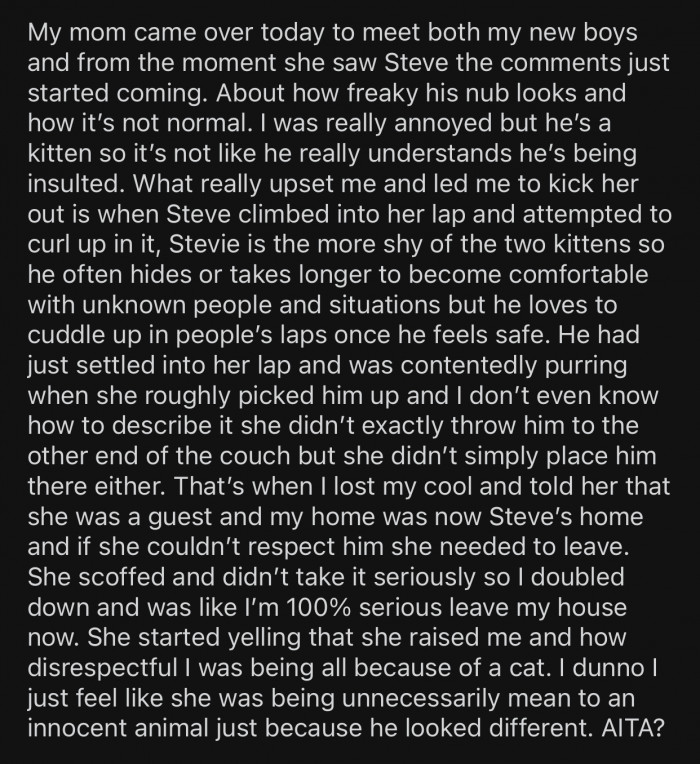
Parental Influence on Pet Perception
Research shows that parental attitudes significantly influence children's perceptions of animals. A study published in the Journal of Applied Animal Welfare Science found that children who experienced positive reinforcement regarding pets developed greater empathy for animals.
This suggests that the mother's negative comments about the kitten could reflect her own upbringing and attitudes towards animals. Understanding these dynamics can open pathways for discussions about compassion and empathy, allowing for potential changes in behavior towards pets and other beings.
Establishing boundaries is essential for maintaining healthy relationships, particularly regarding pet ownership. Research indicates that setting clear boundaries can enhance communication and reduce conflicts in familial interactions.
Pet owners should consider discussing their feelings about their pets openly while also being receptive to others’ opinions. This balanced approach can foster mutual respect and understanding, ensuring that everyone feels heard and valued, including the animals.
Intergenerational Conflict and Pet Care
Dr. Alice Thompson, a developmental psychologist at the University of Michigan, highlights that intergenerational conflicts often arise from differing values and expectations.
The Redditor's mother may not fully understand the emotional depth that pet ownership entails, leading to dismissive comments about the kitten.
This clash reflects a broader societal trend where younger generations view pets as family members, while older generations may see them as mere animals.
Op eventually modified the post to include an Edit with more context about the situation.
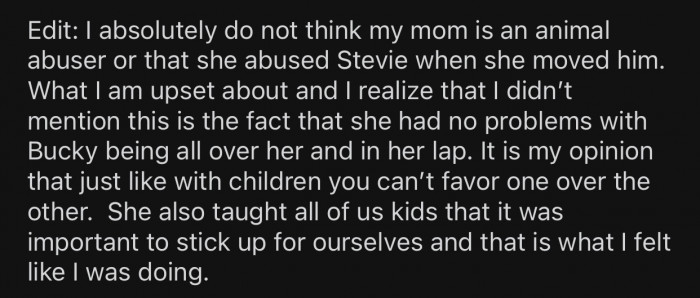
Here's how the Reddit community reacted to u/ProudAFFurMama1's post:
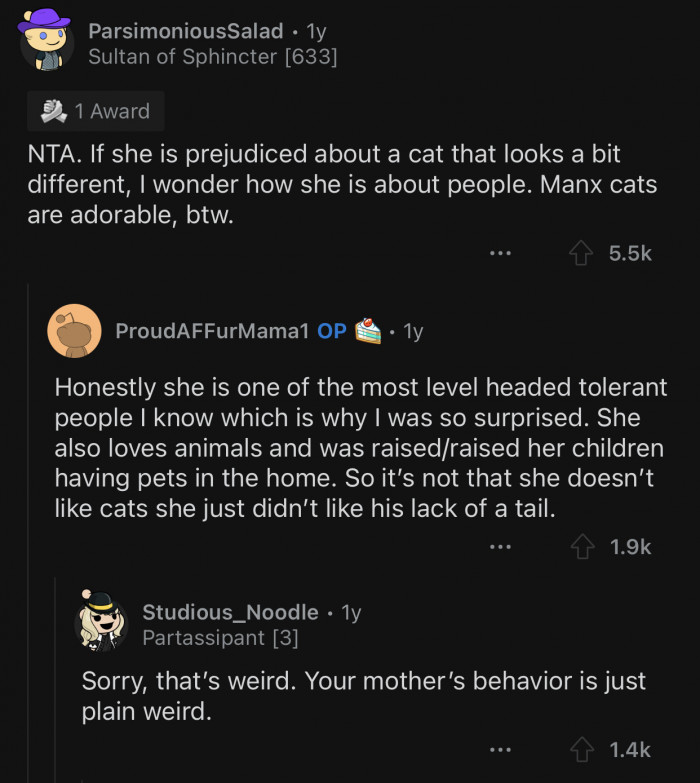
Pets are part of the family, and Op's mom should have been nicer to the kitten.
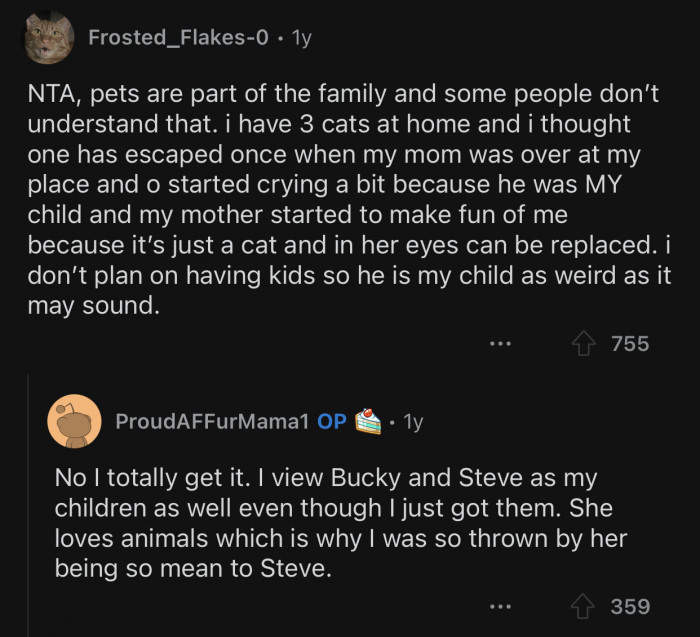
Negative comments about pets can evoke strong emotional responses, especially in those who have formed attachments. A study by the University of Michigan found that people often perceive criticism of their pets as an attack on their identity or values.
This can lead to defensiveness and strained relationships, as pet owners may feel compelled to protect their furry companions from perceived threats. Recognizing this emotional connection is critical for fostering a supportive environment where everyone feels valued, including the pets.
Research shows that how we treat animals can be indicative of broader attitudes toward empathy and care, suggesting that the mother’s behavior might be rooted in her upbringing and cultural context.
In this case, the mother’s insults towards the kitten may reveal her own discomfort with vulnerability and emotional expression.
Op's mom gave her insight into her real character.
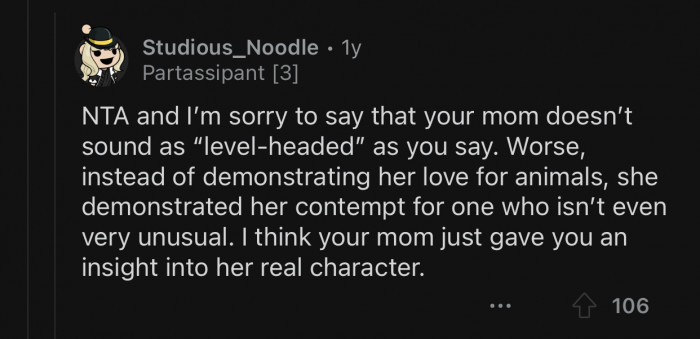
Op's mother can't hide the fact that she wants grandchildren.
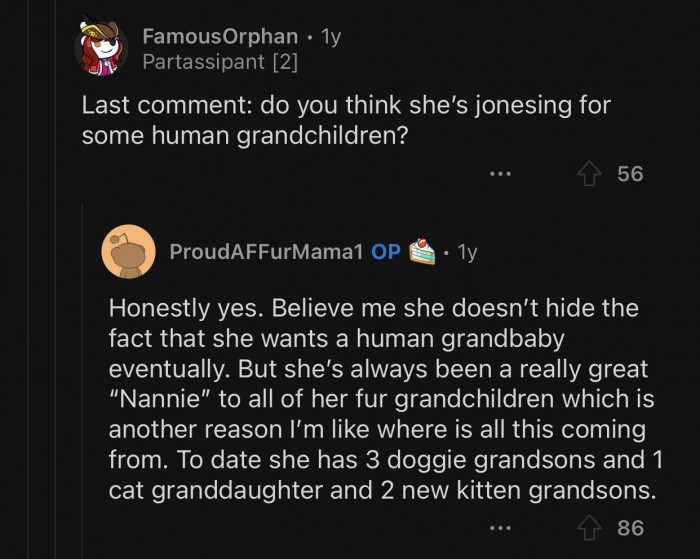
Scroll down to check out the picture included in the links below.
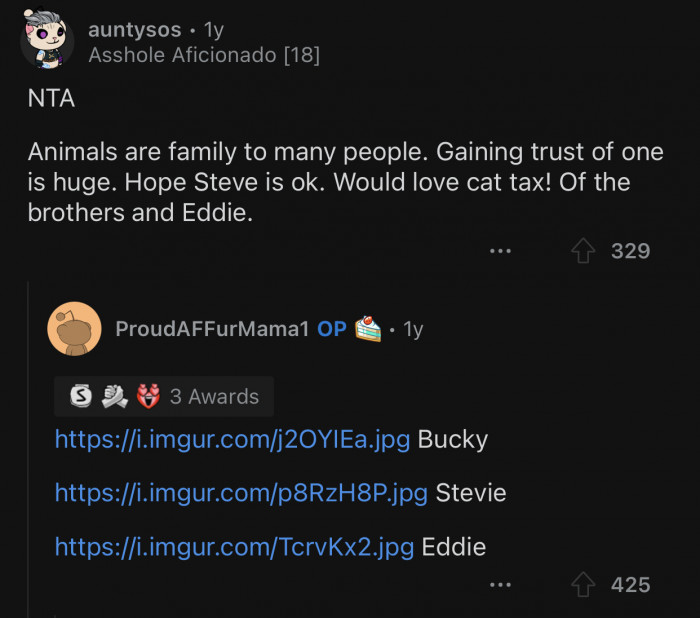
Empathy Development
Empathy is a crucial psychological trait that develops through interactions with others, including pets. Research from the University of California, Berkeley, highlights that nurturing animals can enhance one's ability to empathize with others.
When individuals face criticism about their pets, it can hinder this empathy development. Encouraging supportive interactions with pets and discussing feelings associated with them can help individuals understand emotional responses better, promoting a deeper connection with both animals and people.
Navigating Family Dynamics
To address these conflicts, open communication about the importance of the kitten to the Redditor is essential.
Studies indicate that expressing feelings and setting boundaries can lead to healthier family dynamics.
By explaining the emotional bond with the kitten, the Redditor may help her mother understand the significance of respectful treatment.
This is Bucky.
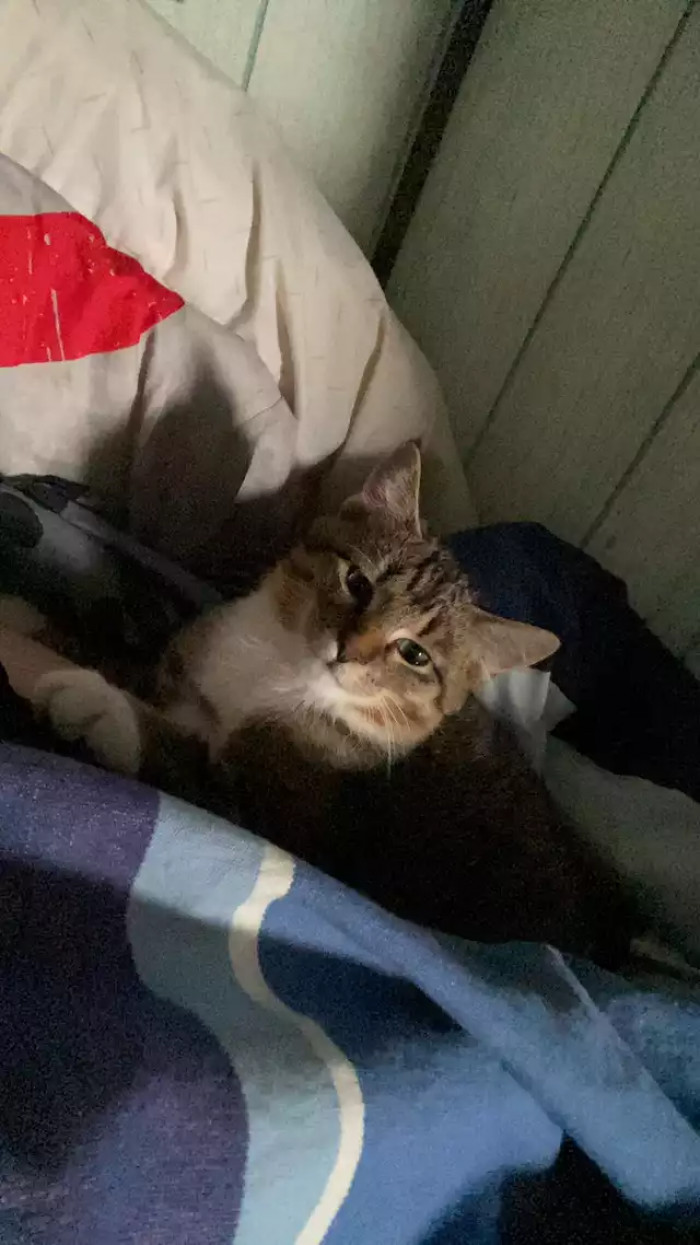
This is Stevie.
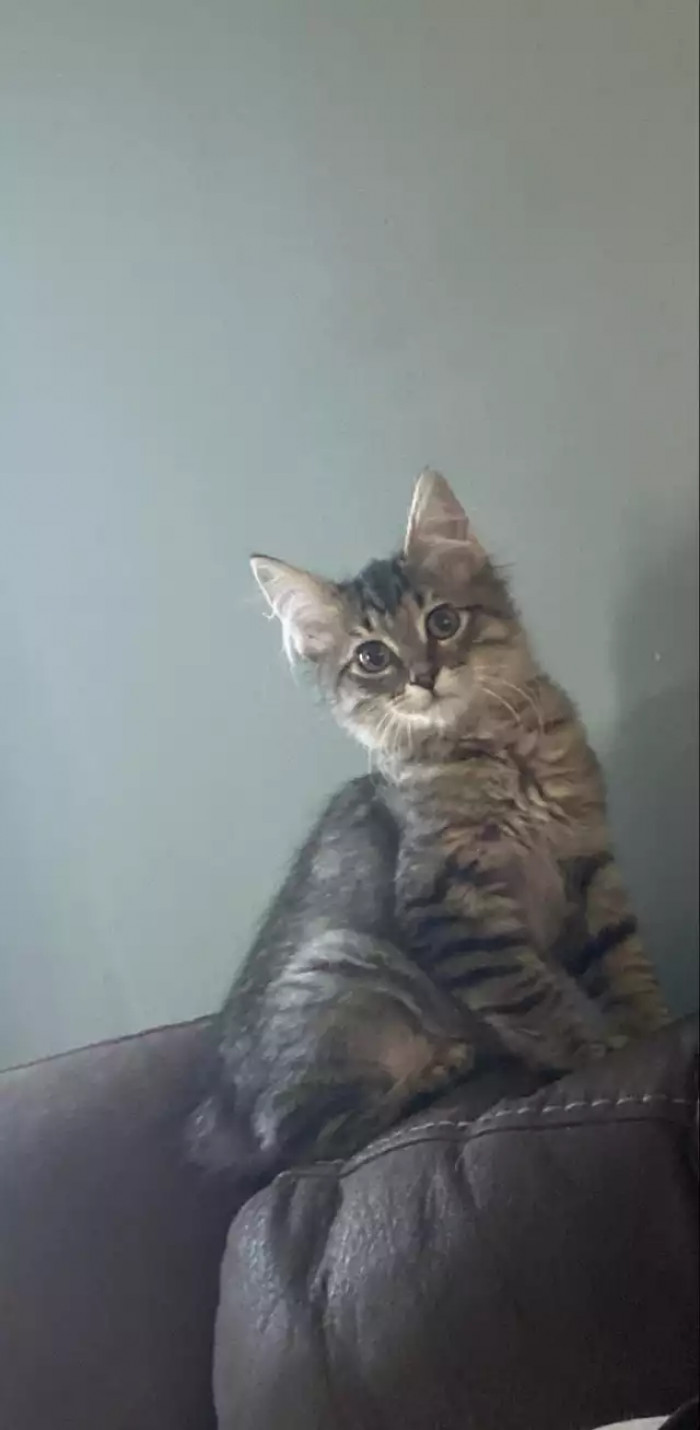
And this is Eddie.
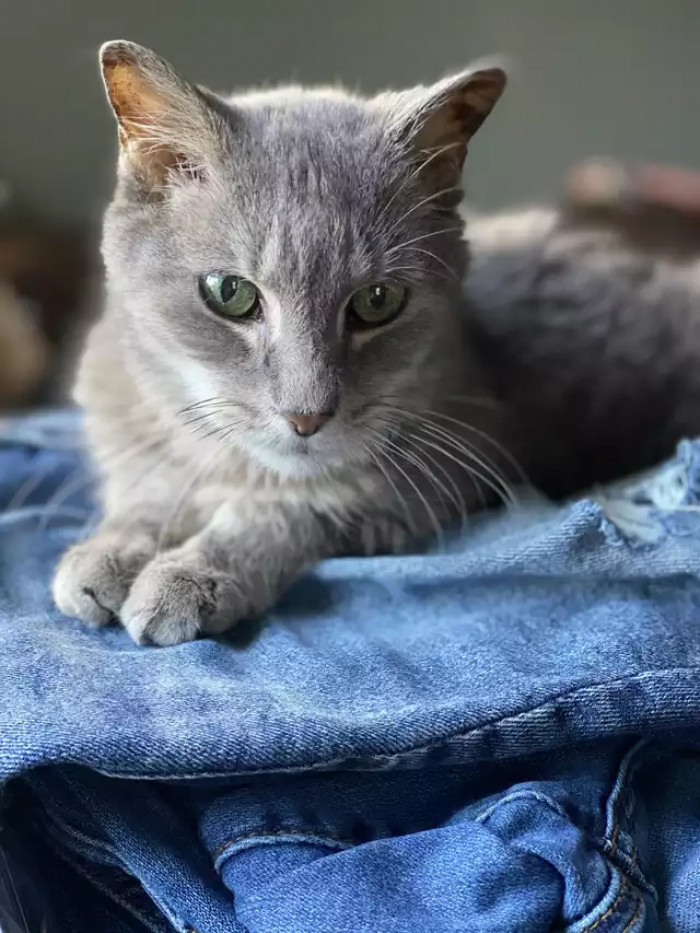
Conflict within families can stem from differing values, including attitudes towards pets. Studies suggest that family members often reflect their upbringing in their interactions with animals, leading to clashes when views differ.
To resolve such conflicts, it may be beneficial to establish open communication channels. Practicing active listening can help family members understand each other's perspectives, fostering a more harmonious environment where everyone can express their love for pets without fear of criticism.
Additionally, involving her mother in positive experiences with the kitten, such as playing or feeding, may foster empathy and change her perspective.
Building a shared understanding can bridge generational gaps and promote a more compassionate family environment.
Stevie is absolutely adorable. How could anyone treat him like that?
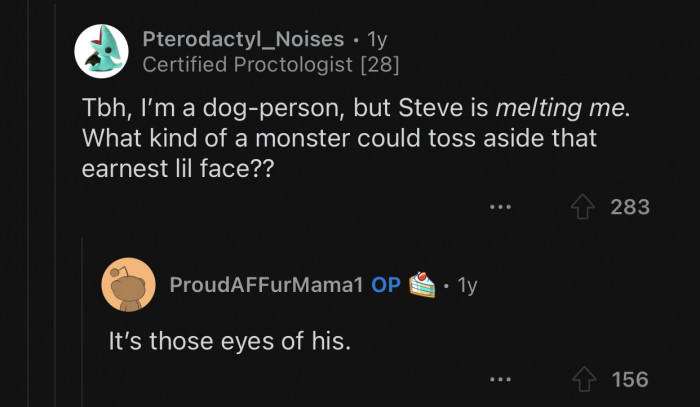
You can't hurt a cat's feelings. They literally can't understand a word you're saying.
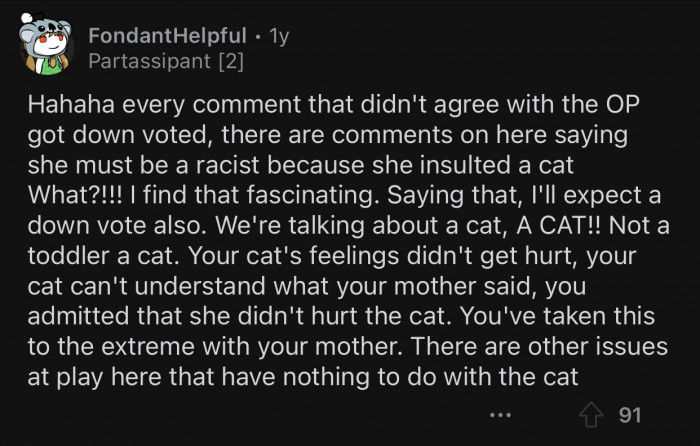
The real issue is more complicated than this.
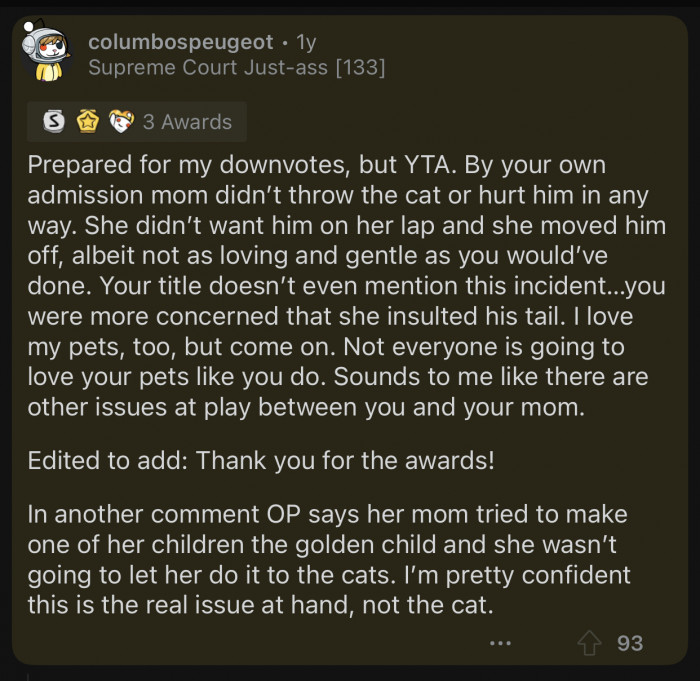
The Role of Attachment Theory
Attachment theory suggests that early relationships shape our emotional responses to others, including pets. Dr. John Bowlby's foundational work indicates that secure attachments can lead to healthier relationships with both humans and animals.
In the situation described, the mother's criticisms may stem from her own attachment experiences. Understanding this can help pet owners navigate family dynamics more effectively, potentially transforming negative interactions into opportunities for growth and deeper understanding.
No pet owner likes watching their pet get mistreated.
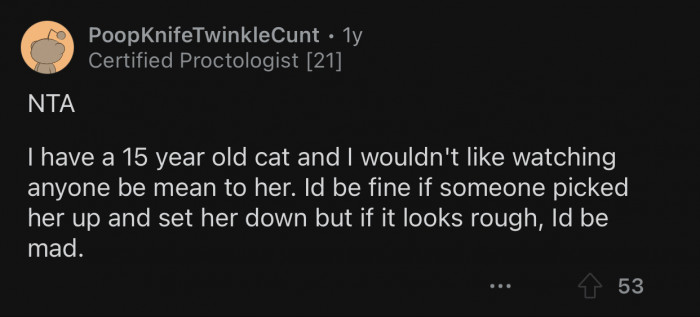
Interactions with animals you are not close to are sometimes awkward.

"If she hadn’t wanted either of them on her, that would have been totally understandable."
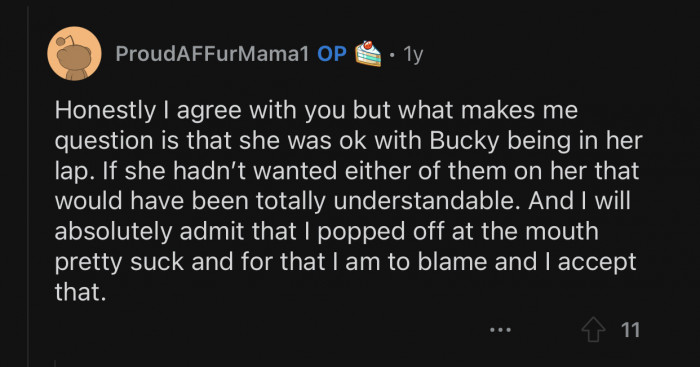
Negative experiences with pets can trigger stress responses in owners, particularly if family members are unsupportive. A study published in the Journal of Personality and Social Psychology found that social support significantly mitigates stress related to pet ownership.
By fostering a positive environment and encouraging supportive discussions about pets, families can reduce conflict and enhance emotional well-being for both humans and their animal companions. This creates a nurturing space for everyone involved.
Op blew things out of proportion. It's a cat after all.
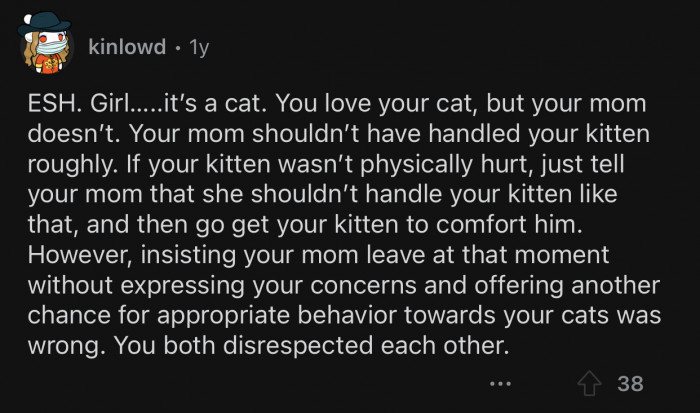
It's not "just a cat." Everyone is different.
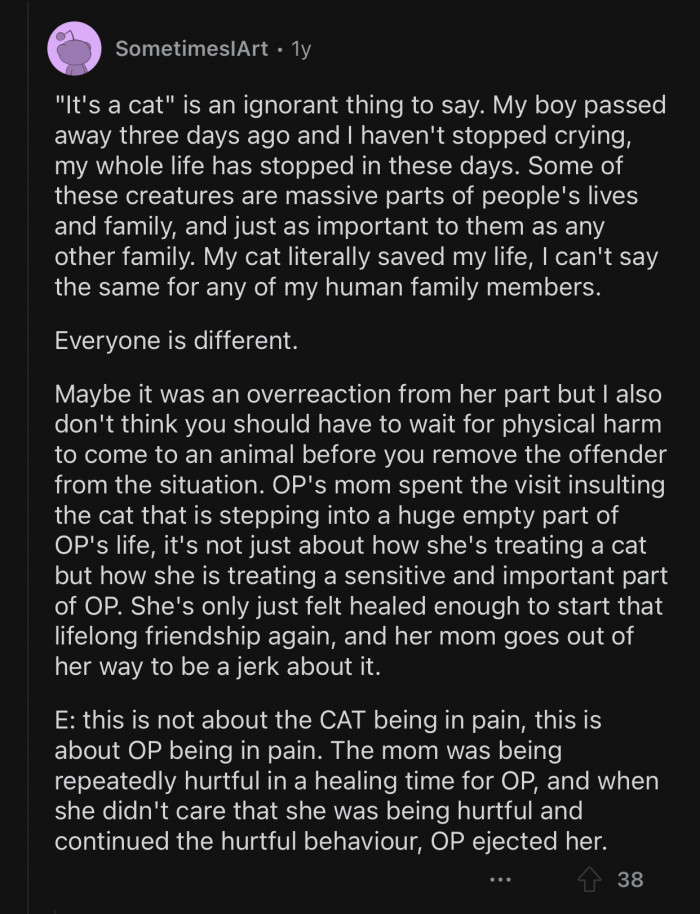
The mom shouldn't have treated the kitten that way.
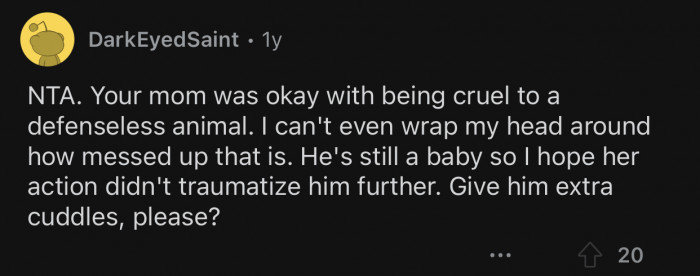
Cognitive Dissonance in Family Dynamics
Cognitive dissonance theory explains how conflicting beliefs lead to psychological discomfort. When a pet owner feels criticized by a family member, it can create internal conflict, making it difficult to maintain a positive relationship with both the pet and the critic.
To resolve this, individuals might benefit from reframing the situation. Instead of viewing criticism as a personal attack, they could see it as an opportunity for dialogue, allowing for deeper understanding and resolution of underlying family issues.
Op's mom was out of line for behaving the way she did and mistreating the poor kitten. He's a member of Op's family and should be treated with respect and love. However, Op should have had a talk with her mom instead of kicking her out, and if she still persisted, that would have been a good last resort solution. If you enjoyed reading this story, make sure to check out similar content on our platform.
Psychological Analysis
This situation highlights the challenges of differing values in family dynamics, particularly regarding pet care and emotional expression.
From a psychological perspective, bridging these gaps requires patience and a willingness to understand each other's viewpoints to foster mutual respect.
Analysis generated by AI
Analysis & Alternative Approaches
Addressing intergenerational conflicts requires sensitivity and understanding of differing values regarding pet care.
Research consistently shows that fostering empathy and open dialogue can help heal rifts and promote familial harmony.
Ultimately, valuing each other's perspectives strengthens relationships and deepens emotional connections.
Analysis & Alternative Approaches
Understanding the emotional dynamics surrounding pet ownership is crucial for fostering healthier family relationships. By recognizing how attachment styles and empathy influence interactions, families can create environments that prioritize open communication and support.
Addressing negative comments and fostering empathy through dialogue can transform conflicts into opportunities for growth. Both pets and their owners thrive in nurturing environments where everyone feels respected and valued, showcasing the profound impact of psychological principles on everyday life.



